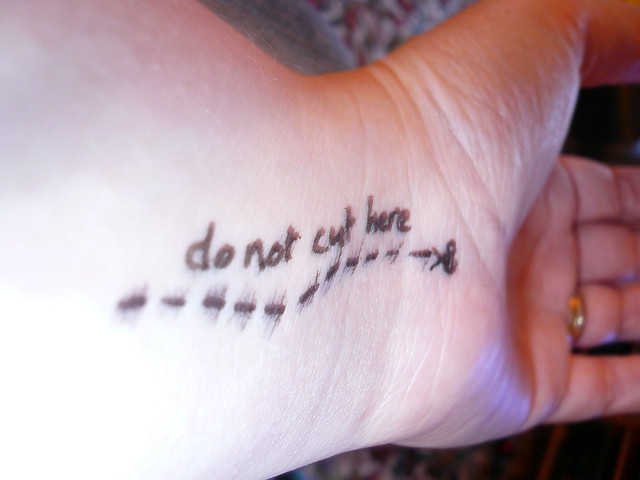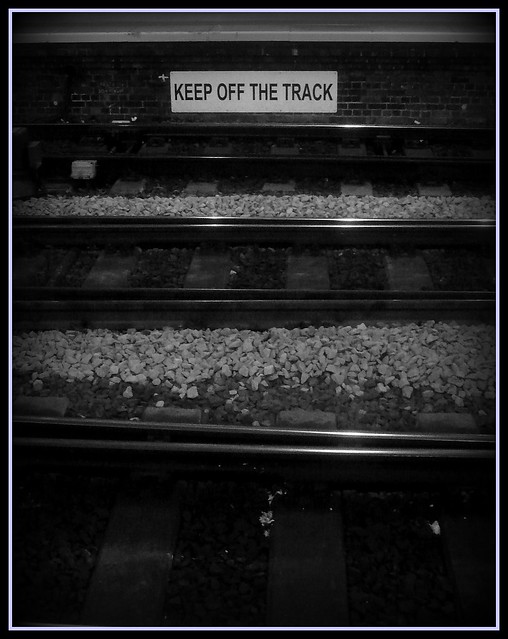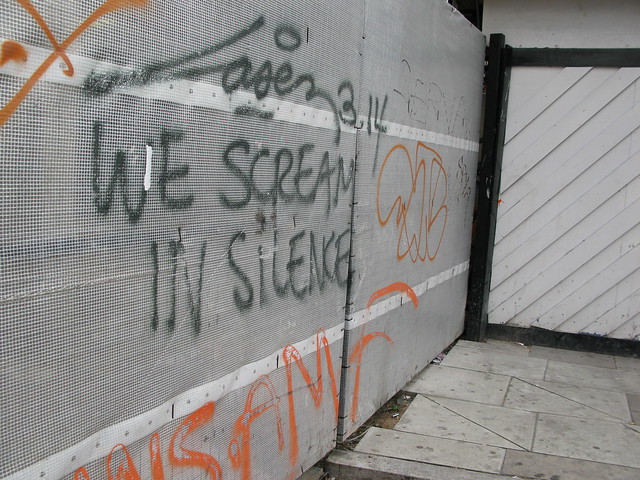Something has kept me silent in recent months - I'm not entirely sure what that something is but I think a large part of it is the fact that I couldn't bring myself to tell you how dark things have got for me again. The 'conquering hero' persona felt so comfortable that I didn't wan't to admit how distant that identity was becoming. When I first wrote my contribution to 'Our Encounters with Suicide' in October 2012 I felt safer than I had for many many years - In fact I felt pretty much bullet-proof. I'm not sure what changed or why it changed but Our Encounters with Suicide has now gone to print and it's gutting that I can no longer relate very strongly to the final paragraphs. But the good news is that my latest medication seems to be helping (third time lucky!) and I've felt completely safe for more than a week so I'm pretty optimistic about everything right now.
You can read the first draft of my chapter in full below - I'm hoping that the editors have tidied up the glaring errors but it's fairly readable as it stands. The only feedback I had during the submission process was "It's fine" so I have no idea if it's any good but I feel something approximating pride when I read it back so hopefully it will be kindly received and hold it's own alongside the other chapters. I'm still waiting for permission to republish this on my blog but I'll leave it here unless I get asked to take it down. You can order the full book via PCCS's website: http://www.pccs-books.co.uk/products/our-encounters-with-suicide/#.UfePcFFk--K
"I am standing by the sink in our kitchen. I
am holding a knife in my right hand. I am pressing the very tip of the blade
hard against the artery that runs up my left wrist. I want to puncture the vein
and let some blood flow but my skin is unyielding and resists my efforts. I am
not trying to kill myself but a part of me wants to know how easy it will be to
slit open that vein if I do decide to die. I’m disheartened to discover that it
will be much harder than I have imagined.
Arguably this is the closest I have come to
acting on my suicidal impulses. Looking back I can see that it represents the
summit of a mountain that I have been desperately trying not to climb and yet
somehow I find myself standing here pressing a knife into my wrist. I shrug off
my death wish once more and carry on unloading our dishwasher.
At that moment it was less than six months
since my GP had diagnosed me with severe chronic depression and prescribed the
minimum daily dose of Citalopram. I was now up to the maximum dosage of 30mg
and the safety net that I had hoped anti-depressants would provide has failed
to materialise. In one of our weekly sessions I tell my therapist that I feel
as though I wake up every morning looking into the abyss and have to spend the
rest of the day inching my way back from the cliff’s edge. And then I go to
bed, eventually fall asleep and wake up the next morning to find myself at the
cliff’s edge once more.

I’d been battling with this death wish for
much of my adult life but by this point it had evolved from an occasional
intrusive brutal thought, often involving being instantly wiped out by a
passing lorry, to thoughts that were becoming more frequent, more deliberate and
more insistent. And there was a voice that had started accompanying the thoughts.
The voice had started repeatedly whispering “Do It!” as a train pulled into the
platform or as a bus hurtled by at the traffic lights. So far another voice
inside me had always dismissed the whisper but that voice seemed to be fading fast
and the whispering voice was getting louder. I am terrified that the whispering
voice will win out, deeply ashamed that I seem to be failing at the simple task
of being human and exhausted by my seemingly Sisyphean struggle. More than
anything I just want the battle to be over – one way or the other.
In truth I wasn’t scared of dying but I was
scared of the legacy my suicide would leave behind for the people I knew.
Particularly those I loved; my husband. My twin sister. My mum. My grandma. My
older sister and her young children (who are still struggling to cope with the
unexpected death of my brother-in-law). My aunts, uncles and my cousins. My
best friend. My work colleagues. My therapist. My wider circle of friends. My next door neighbours. Even the 2000 people
who followed me on Twitter. I worried that one day I would stop worrying about
what my death would do to them. Because when that day arrived I would be free
to jump. In a notebook I wrote: “too scared to live, too brave to die”. But I didn’t feel brave – I felt pathetic and
I felt trapped by my own cowardice. I wanted to not exist, to stop breathing,
to fade away – I did not want to take my own life. I couldn’t bring myself to
commit to suicide but by this point it was the only solution that held any
hope. I wanted my death to be painless, painless for me and painless for those
I would be leaving behind. My fear of a failed attempt and of the suffering a
successful attempt would cause for those who know me were the only things
keeping me alive. One day I was hit by the realisation that the only way I
could kill myself without hurting anyone else would be to take the entire
planet out with me – the thought was absurd, brutal, deeply shocking and it was
the first glimpse I got of the deeply buried anger that lay beneath my
depression and my tendency towards self-destruction.
At the time I had no idea of how close to
the edge I was in reality and whether I would ever act on my suicidal impulses
but I stepped up the precautionary measures I’d been taking for years – While waiting
at tube stations in London I’d force myself to stand with my back pressed
against the back wall away from the platform edge until the arriving train has
come to a halt. When my husband handed me a large box of 400mg ibuprofen I took
one strip from the box and asked him to store the rest at work. And as the
deathly whispering got louder I devised delaying tactics and made bargains with
myself to buy extra time – I started knitting a blanket 400 stitches wide and
internally agreed not to kill myself before the blanket was finished.
I clung onto lines from songs, poems and
books as if they were life rafts, all the while staying almost silent about my
battle to everyone except my GP, my therapist, my husband, my twin sister.
Everyone I met on a day to day basis would scarcely have suspected I had
depression let alone guess that I was suicidal – it is no wonder that
depression is sometimes called ‘the grinning madness’. I lived in fear of anyone
uttering the phrase “are you *okay*?” with anything close to genuine concern –
I was convinced that I would completely fall apart. The silence is cast iron, completely
self-imposed and I didn’t consider breaking it for even a moment.

I’m walking across Ouse Bridge on my way
home from work. I stop half way across to stare into the barely moving, thick
inky water below. I feel the weight of the laptop and other belongings in the
rucksack I’m carrying on my back. I’m certain that if I walk back over the
bridge and make my way to the river’s edge then I can slip into that inviting
darkness and disappear with barely a ripple; the weight of my rucksack enough
to drag me down to the river bed.
The impulse is echoed in the opening lines
from an unfinished poem I’d scrawled on the back of an envelope a few months
beforehand:
Let’s fill our pockets
With the rocks we find
And take our tears
Back to the sea;
We’ll walk into the river,
We’ll walk into the stream,
We’ll walk to the bottom
Of the wave-ridden lake;
We’ll wait in the depths
With our faith, hope and
dreams;
Until the bubbles stop
rising,
Until the air leaves our
lungs,
Until we breathe our last
breath,
Until our desolation
drowns.
My thoughts are jolted back to reality;
someone might see me going under. Or someone might jump in to save me. And that someone might lose their life trying
to save mine. I shrug the thoughts away and carry on home but as I walk away I
launch an internal investigation to try and establish what this morbid part of
me thinks it will gain from sinking below the surface of the Ouse. I ask myself
what I was feeling as I looked down into the dark river and the response that
comes back is immediate: a feeling of comfort, a sense of sanctuary. Shortly
after that night I make contact with the Maytree Respite Centre in London; a sanctuary
for the suicidal.
As I make my way across London to the
Maytree Centre, on an unseasonaly warm and sunny morning in April 2012, I make
one last bargain with myself – I won’t kill myself until after my stay at the
Maytree. As my anxiety levels rise on the train, I put my headphones in my ears
and cocoon myself in The Silent League’s songs to keep me safe during my
journey. I arrive at their front door with a feeling that could best be
described as chronic battle fatigue and I surrender myself completely to their
care for five days. While I’m there I
sleep, talk, eat, knit, read, laugh and cry. In my cosy attic bedroom, in the
sun-filled garden, at the dinner table and in the one-to-one therapy sessions I
finally find the sanctuary I’ve been so desperately searching for. In one of
the individual therapy sessions one of the directors tells me that she has a
picture of me in her mind – I’m standing on the hellishly hot banks of a river
and cannot bring myself to jump into the cool, revitalising waters of the
stream that is running alongside me, even though I know how much better I will
feel once I do. I worry that I will leave after four nights and will still be
afflicted by the feeling of paralysis that has plagued me for so many years. On
the sheet of paper left by my bedside table I write “I have a river of tears trapped inside me” –
I feel like I have both a volcano about to erupt and a dam about to burst
inside me. A day later I scribble the words “I am already dead inside” and part
of me realises that killing myself would be utterly pointless because something
in me has already been murdered many, many years earlier. The thought is much
more comforting than it probably sounds.
In one of my last one-to-one sessions the same
director tells me she hopes that even though I can’t yet take off my armour she
hoped that my time at the Maytree had at least thinned it out a little. As I
prepare to leave the next day I feel like a different person. In fact I feel
like a person full stop – I have a fledgling sense of self for the first time
in living memory. And as my train back to York pulls out of Kings Cross Station
I have a sense of ‘going home’ for the first time too. I look out of the window and see a small
stream glinting alongside the traintracks and I write in my notebook: “a river
of kindness is following me home”
I still don’t understand exactly how or why
but my persistent suicidal thoughts disappeared overnight, as if a switch in my
head had been flipped to ‘off’ while I was sleeping – But I do know that I know
longer see bridges, rivers, roads, train-lines, knives and painkillers are no
longer weapons that I can use to kill myself. The void that I woke up next to
every morning has also receded from view and the grinding, aching empty
nothingness that I once felt is already hard to me to imagine. And I suddenly
feel like I’ve not only discarded my battle-worn armour, I’ve removed myself
from the battlefield completely.
When I look back at what I went through it
is my self-imposed vow of silence that I still find chilling and I worry that
if the darkness envelopes me again in the future I would stay silent once more.
So I feel like I have a moral duty to break my own silence about what I went
through while I can and also speak up about my experiences on behalf of those people
who cannot yet bring themselves to reach out and let someone know that they are
drowning inside. My weekly therapy sessions continue, possibly to be succeeded
by group therapy sessions in the near future. I still have a lot of work to do
around safeguarding myself and building a resilient sense of self but I no
longer feel like I’m doing so on borrowed time – I now have my whole lifetime
to unravel and embrace the mystery that makes me who I am."





